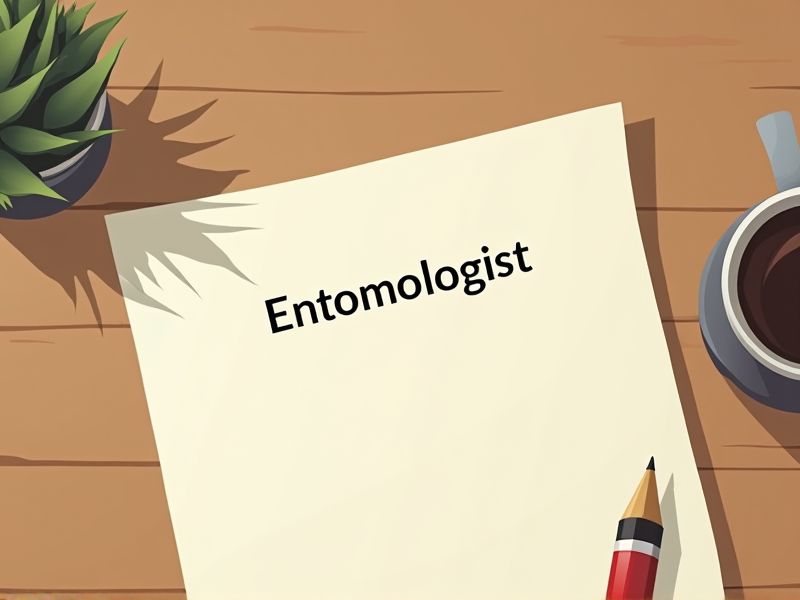
Entomologists study insects and their relationships with humans, the environment, and other organisms, requiring specific expertise and skills. Certain certifications validate their knowledge in insect taxonomy, pest management, and ecological impact assessment. These credentials can enhance career prospects, ensure adherence to industry standards, and promote scientific rigor. Some important certifications an entomologist may need include those related to pesticide application, integrated pest management, and forensic entomology.
American Board of Medical Entomology (ABME) Certification
The ABME certification establishes a standardized benchmark for expertise in the field of medical entomology, raising professional credibility. Possessing the certification may enhance job opportunities and career advancement, as employers often seek qualified candidates. Certified individuals contribute to public health efforts by effectively managing vector-borne diseases through informed decision-making. Continuous professional development is encouraged through maintaining the certification, ensuring entomologists are updated with the latest scientific advancements.
Certified Pest Management Professional (CPMP) Certification
The CPMP Certification equips entomologists with specialized training in integrated pest management, enhancing their ability to effectively tackle pest-related issues. Increased credibility and trust among clients and stakeholders often follow, as they recognize the certification as a mark of proficiency. A certified entomologist can access advanced resources and networking opportunities, fostering professional growth and staying current with industry practices. Regulatory compliance requirements frequently necessitate a recognized certification, making the CPMP essential for advancing roles in pest management.
Integrated Pest Management (IPM) Certification
Integrated Pest Management (IPM) Certification provides entomologists with a structured approach for systematically addressing pest-related issues using effective, environment-friendly methods. Certification ensures entomologists have comprehensive knowledge of current pest control technologies, which in turn leads to more sustainable agricultural practices. With IPM Certification, entomologists are better equipped to design and implement pest management strategies that minimize risks to human health and the environment. The credential enhances professional credibility, signaling to employers and clients that the entomologist possesses specialized expertise in sustainable pest control methods.
Pesticide Applicator License
An entomologist often deals with pest management, requiring a pesticide applicator license to ensure safe and effective usage of chemicals. The licensing process provides the necessary knowledge to minimize environmental and human health risks associated with pesticide use. Regulations mandate that professionals applying pesticides hold a license to ensure competence and compliance with legal standards. Licensed entomologists maintain public trust by demonstrating adherence to safety and ethical guidelines in their pest control practices.
Insect Identification and Taxonomy Certification
Insect Identification and Taxonomy Certification enhances an entomologist's ability to accurately classify and understand diverse insect species, which is crucial for ecological research and biodiversity conservation. Misidentification of insects can lead to flawed research outcomes and ineffective pest management strategies, so certification ensures higher precision in these areas. The certification promotes standardization and consistency in entomological studies, facilitating better communication and collaboration among scientists globally. Certification often serves as a credential that can improve job prospects and professional recognition in the field of entomology.
Environmental Impact Assessment (EIA) Certification
EIA Certification equips entomologists with the necessary framework to evaluate how insect populations affect and are affected by proposed projects. This certification aids in identifying potential ecological disruptions, ensuring sustainable ecosystems, and safeguarding biodiversity. When entomologists integrate EIA practices, they help mitigate risks associated with habitat loss, pollution, or invasive species introduction. Ensuring insects' ecological roles are preserved supports essential services like pollination and nutrient cycling.
Agricultural Extension Specialist Certification
Certification in Agricultural Extension for an entomologist enhances their ability to effectively communicate pest management strategies to farmers. It provides structured methodologies for educating agricultural communities on sustainable practices. The certification ensures the entomologist is well-versed in both current research and practical applications. It bridges the gap between entomological research and real-world agricultural applications, improving crop outcomes and pest control efforts.
Graduate Certificate in Entomology
The Graduate Certificate in Entomology equips entomologists with specialized knowledge, which enhances their ability to manage insect-related challenges in agriculture and public health. This certification provides targeted education that allows professionals to stay updated with recent scientific advancements and methodologies. Employers often seek certified entomologists as they bring proven expertise in identifying and mitigating insect-related issues. Earning this credential can open career opportunities and potentially lead to higher compensation.
Laboratory Safety and Biohazard Handling Certification
Laboratory safety and biohazard handling certification is crucial for entomologists because their work often involves dealing with insects that may carry pathogens. Exposure to biohazards without proper training increases the risk of contamination and disease transmission. Certification ensures that entomologists are equipped with the knowledge to implement safety protocols effectively. It also fosters a safer research environment, protecting both the researcher and the broader community from potential hazards.
Biosecurity and Invasive Species Management Certification
Biosecurity and Invasive Species Management Certification equips entomologists with specialized knowledge to effectively prevent the spread of harmful pests. Invasive species can disrupt ecosystems, causing economic and environmental damage, thus necessitating informed management strategies. This certification ensures entomologists are adept at implementing biosecurity measures, minimizing the risk of non-native species introduction. Increased globalization heightens the threat of invasive species, making certified expertise vital for safeguarding biodiversity.
Summary
When you, as an entomologist, obtain certifications, your expertise may become more recognized within the scientific community. This can lead to increased opportunities for collaboration and research funding. Employers might view you as a more attractive candidate for specialized roles. Enhanced credibility can potentially elevate your professional reputation and influence in the field.
